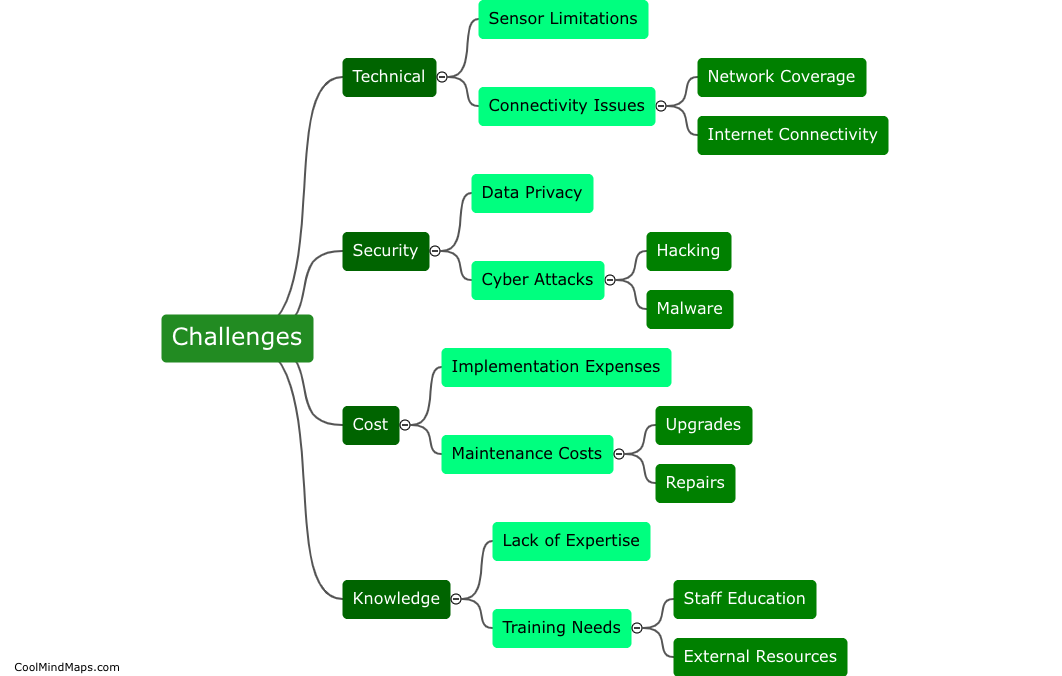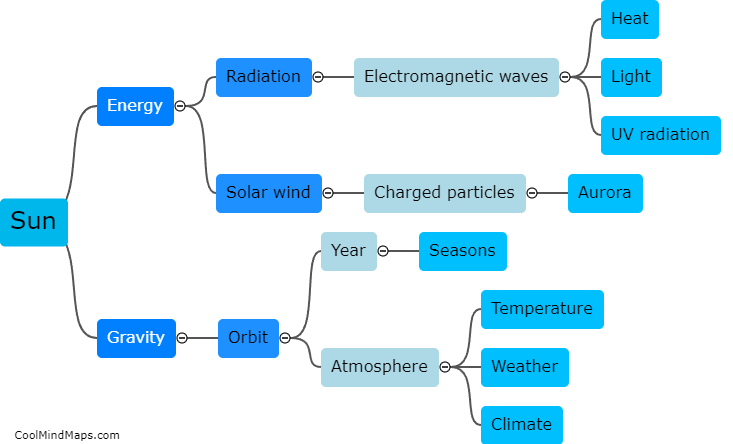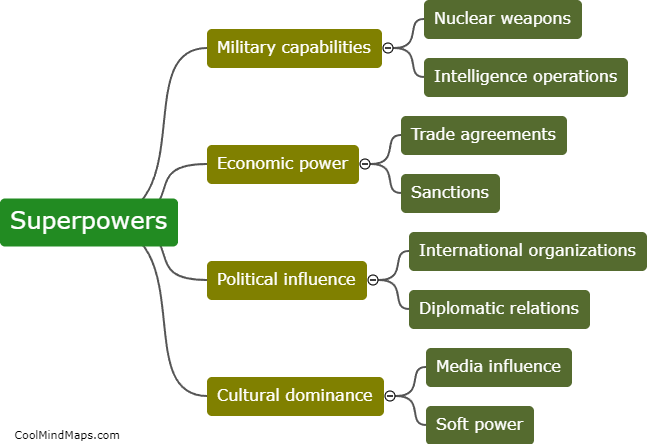What are the key factors driving political conflicts and alliances?
Political conflicts and alliances are influenced by various factors, including power dynamics, resource distribution, ideology, and geopolitical interests. Power imbalances, such as unequal distribution of resources or unequal representation, can create tensions and conflicts among political groups. Ideological differences, such as opposing views on policies, can also contribute to political conflicts and alliances. Geopolitical interests, such as strategic alliances, can further complicate political relationships both domestically and internationally. Additionally, economic factors such as trade agreements and international dependencies can also drive political alliances and conflicts. Ultimately, the interplay of these factors and their alignment with individual or group interests determine the direction and strength of political conflicts and alliances.

This mind map was published on 18 April 2023 and has been viewed 108 times.











